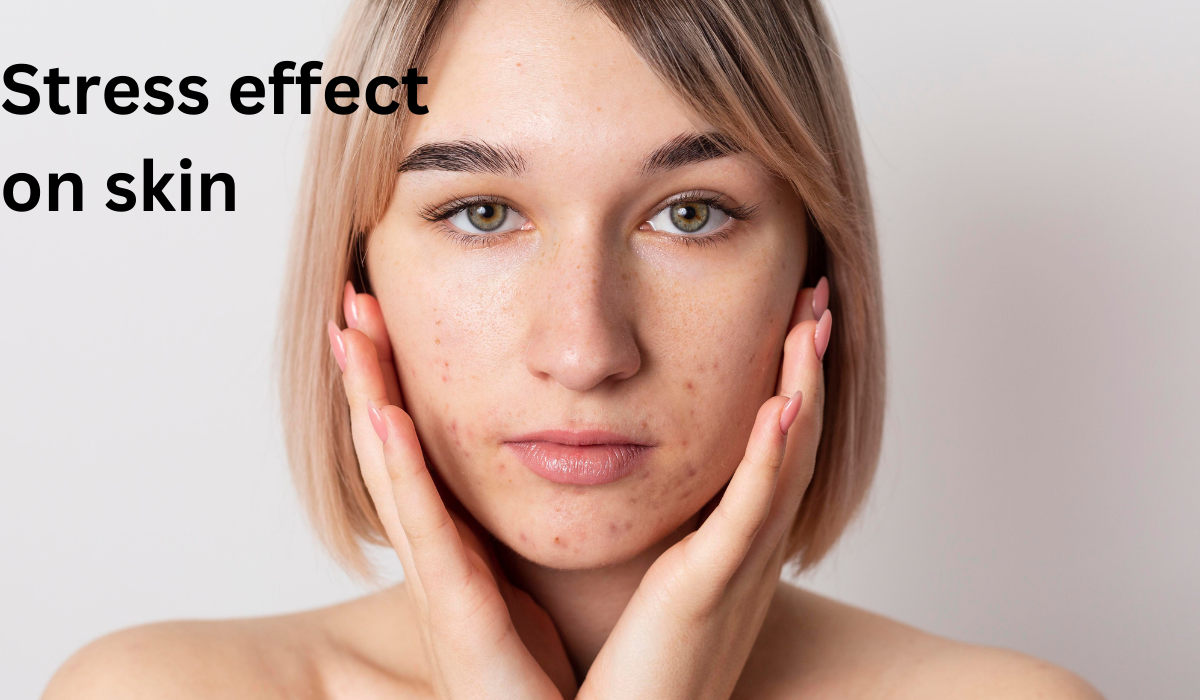Though stress on occasion is normal for everyone, prolonged stress can have negative impacts on one’s health. In addition to having an adverse impact on your immune system and raising your risk of heart attack and stroke, Sources can raise your chances of depression.
Table of Contents
Additionally, stress can leave a mark on your face. Acne, wrinkles, and dry skin are just a few ways that it may show itself. Continue reading to learn about the further facial impacts that stress can cause. stress can leave a mark on your face.
Acne, wrinkles, and dry skin are just a few ways that it may show itself. Continue reading to learn about the further facial impacts that stress can cause.
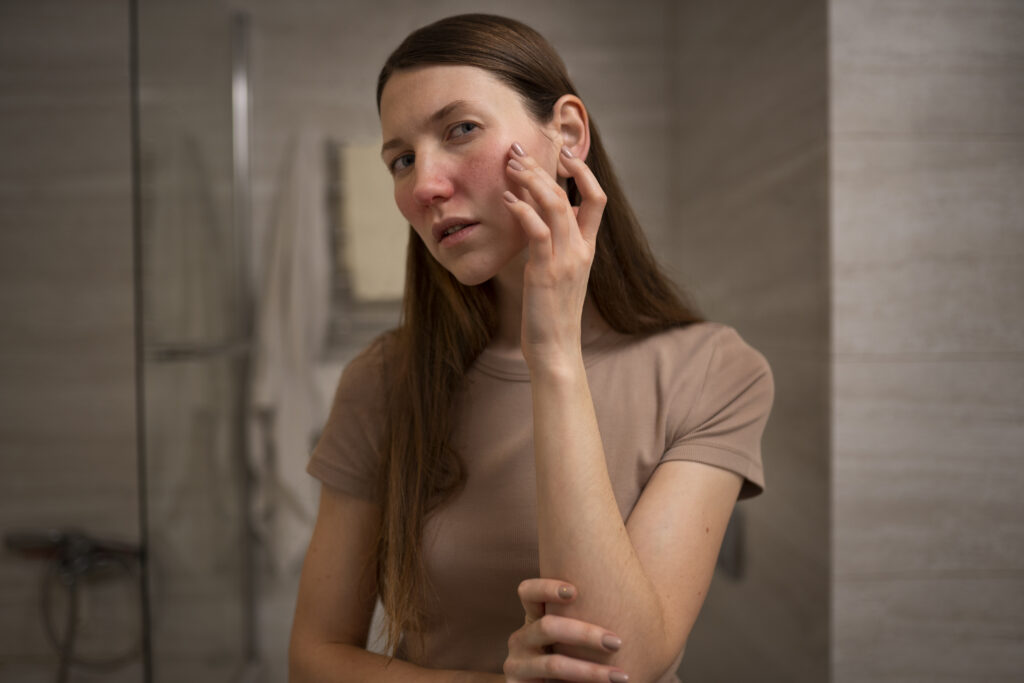
How stress effect on your skin?
Stress has become more common in today’s fast-paced society, and it has a negative influence on all aspects of our health, including the condition of our skin. There are many ways that stress can show up on our skin, from dullness to breakouts.
This article will examine the connection between stress and skin health, the ways in which stress impacts the skin, and practical strategies for reducing those effects.
Recognizing the Link Between Stress and Skin It’s important to comprehend how stress and skin health are related before delving into the impacts of stress on skin.
Our bodies release cortisol, sometimes known as the stress hormone, when we are under stress.
A number of physiological reactions, including increased oil production, swelling, and decreased skin barrier function, can be brought on by rising cortisol levels.
Many different skin problems, such as acne, rashes ,eczema, and premature aging, can result from these alterations.
How stress’s effects on various skin types ?
Long-term stress can have an adverse impact on the way you look, no matter whether you have combination, oily, dry, or sensitive skin. Here are some ways that stress may impact certain skin types:
Oily Skin: Those who have oily skin may produce more oil as a result of stress, which may block pores and cause acne breakouts.
Further, increased levels of stress can cause inflammation, increasing already-existing acne scars and making them appear more red and inflamed.
Dry Skin: Stress may contribute to dry skin by weakening the skin’s protective moisture obstacles, making the condition more sensitive, rough, and dry.
Also, inflammation brought on by stress can make eczema worse, making it itchy and uncomfortable.
Sensitive Skin: People who have sensitive skin may discover that stress increases the reactivity of their skin, which causes increased sensitivity, redness, and irritation.
Inflammation brought on by stress can also cause disorders like pimples to worsen, giving the appearance of more flushed and sensitive skin.

Mixture skin: Stress can still have an impact on people, even if they have mixture skin. Stress can cause an imbalance in the oil production of the skin, making the dry parts drier and the oily areas oilier.
In oily areas, this imbalance may lead to the development of acne, while in dry places, it may enhance sensitivity so that it may show itself.
How is a Rash Caused by Stress?
A type of skin condition referred to as stress-induced rash, or stress itch or stress hives, is brought on or made worse by stress. Stress causes the body to release hormones like cortisol, which can have an effect on the immune system and skin condition. This may worsen pre-existing problems with skin or induce rashes to develop. Stress is known to worsen or cause a number of conditions. That can result in inflammation of the skin or rashes, including psoriasis, eczema.(https://www.ncbi.nlm.nih.gov/pmc/articles/PMC4082169/)
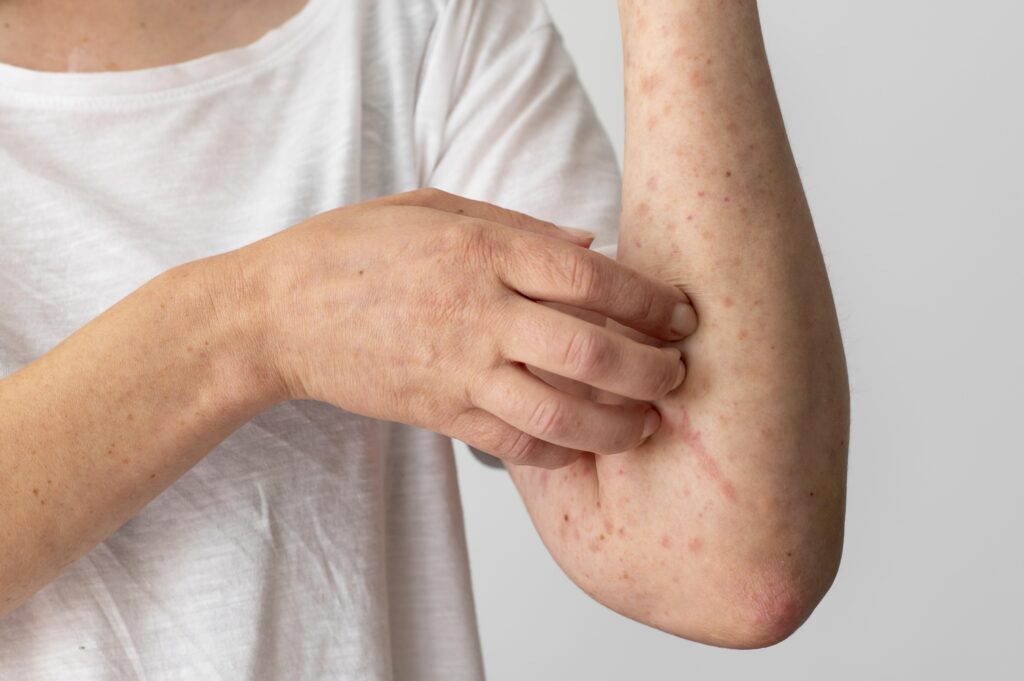
Skin Symptoms due to Stress
The first step in treating the problem is recognizing the symptoms of stress on your skin. Here are a few typical signs that your appearance may be suffering from stress.
The problem is recognizing the symptoms of stress on your skin. Here are a few typical signs that your appearance may be suffering from stress .
Acne Breakouts: Pimples, blackheads, and whiteheads are examples of acne lesions that can occur as a result of increased oil production and inflammation.
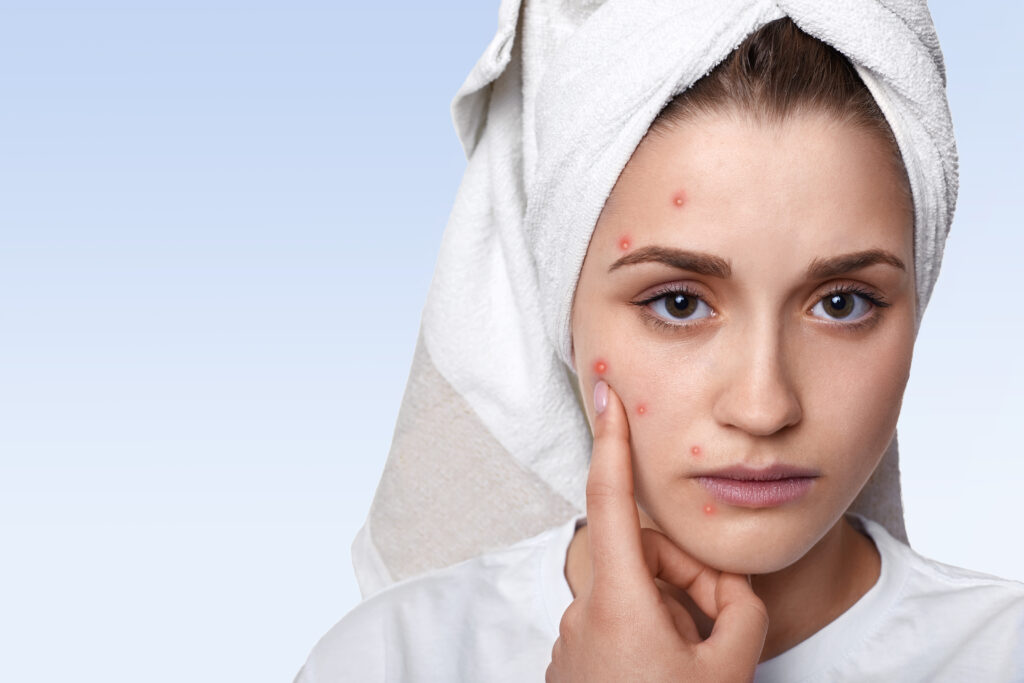
Dullness: Stress can obstruct the skin’s normal renewal process, leaving the complexion lifeless and dull.
Dryness and Cracking: Drying caused by stress can make skin feel tight, dry, and dry, especially in people with sensitive or dry skin. Elevated stress levels have the potential to worsen skin diseases such as rosacea, leading to flushing, redness, and irritation.
Premature Aging: Prolonged stress can hasten aging by encouraging the pimples.
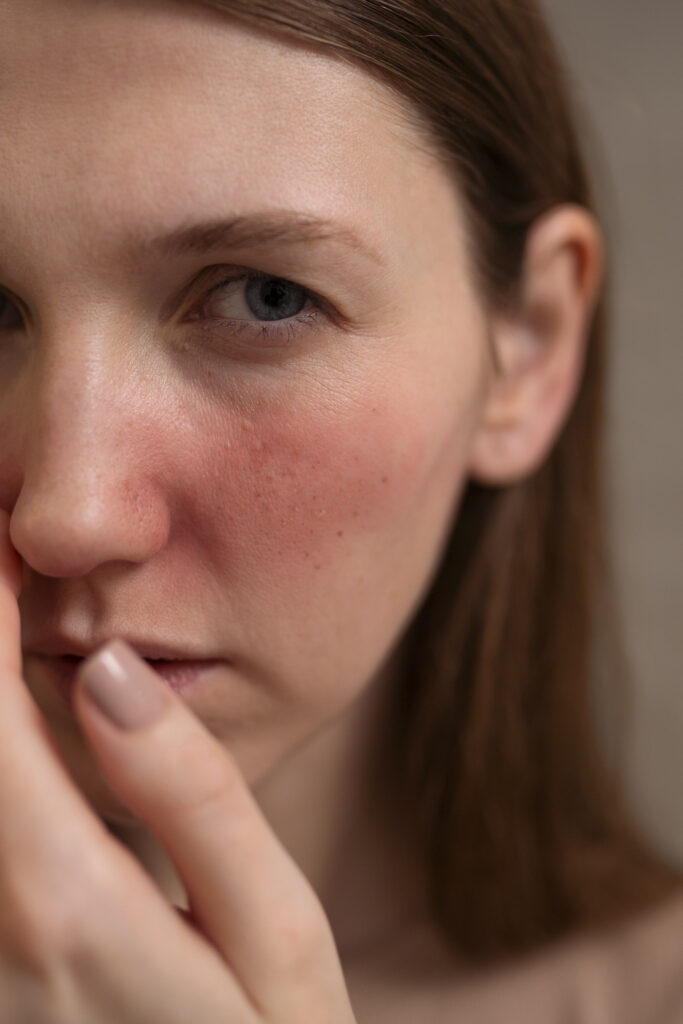
Healing Techniques for Skin Conditions Related to Stress :
Even if we can’t completely remove stress from our lives, there are things we can do to reduce the adverse impacts on our skin
Use Stress-Reduction Techniques: To assist lower stress levels, include relaxation exercises like yoga, tai chi, meditation, and deep breathing in your regular routine.
Make skincare a priority: Maintain a regular skincare routine that suits your skin type, which should include daily application of sunscreen, cleaning, and moisturizing.
Obtain Enough Sleep: To help your skin heal and regenerate try to get a minimum of seven to nine hours of good sleep each night.
Consume a Healthy Diet: To support general skin health, fuel your body with nutrient-rich foods including fruits, vegetables, lean proteins, and healthy fats.
Stay Hydrated: To keep your skin hydrated and full, consume lots of water during the day.

Seek specialist Support: You should think about visiting a dermatologist. Mental health experts for support if stress is having an adverse impact on your skin and general health.
Conclusion:
Stress can have a significant impact on our skin, causing everything from redness and pimples to early aging.
We can lessen the negative effects of stress on the way we look and maintain our youthful appearance by becoming aware of the link between stress and skin health and putting helpful coping mechanisms into practice.
To attain ideal skin health in today’s hectic world, keep in mind essential self-care, effectively manage stress, and pay attention to your skin’s demands.
Picture are taken from http://www.freepik.com.
What skin problems can stress and anxiety cause?
Many different kinds of skin problems, including itching, acne, dryness, dullness
How does skin that is under stress look?
Typical indications of skin stress include: rough or areas of dryness. Swelling or redness. outbreaks or lesions of acne.
Can stress dehydrate skin?
Stress can cause skin to become dry. Experts claim that when you experience stress, your fight-or-flight reaction takes over. Your cortisol and adrenaline levels rise as a result. It increases your sweating slightly, which, if you don’t refresh your body with water, causes dehydration
I am the author of ” Stress effect on skin ” . I want to spread awareness about how stress affect skin and tips to help skin betterment .

